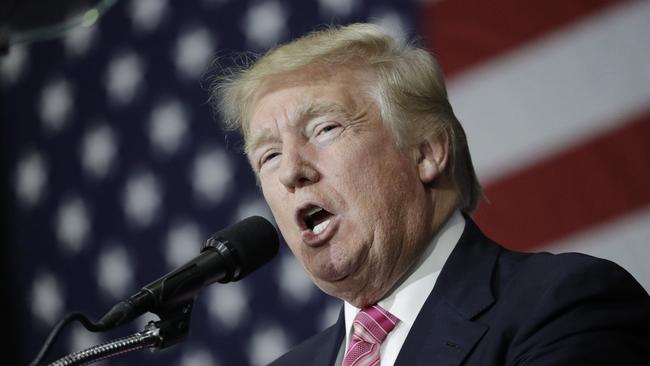
But when it comes to President Trump’s intention to impose tariffs on the exports of a number of countries, the economics is largely irrelevant. Trump sees his threat of tariffs as a powerful lever to use in negotiations with other countries. It’s all about bargaining, parleying; it’s not clear that the toolbox of economists has much to offer at this stage, although they should not vacate the discussion.
The recent case of Colombia was a case-in-point: the threat of tariffs by the US was enough to convince them to receive returning illegal migrants. And now we have seen both Mexico and Canada given a reprieve from the threat to impose tariffs of 25 per cent on their exports to the US, across-the-board.
The test that Trump imposed on these countries – to stem the flow of migrants and to reduce the movement of fentanyl across the borders – has nothing to do with economics. It’s what some commentators are calling geo-economics. It’s unclear what the measure of effort is, but Trump expects evidence of effort as well as results.
It’s still important to point out the downsides of Trump’s unsurprising move on the tariff front. His view that trade is a win-lose proposition needs to be contested. He can surely understand the gains from exchange between buyers and sellers within a country: the same logic applies to international trade.
If he thinks that some things just must be produced in the US – specialised computer chips, for instance – tariffs are a very poor way of achieving this. Direct subsidies, tax credits and foreign investment rules are much more direct.
He also needs to come up to speed with how complicated global supply chains have become, particularly between the US and Mexico and the US and Canada. This integration of the economies has been partly the result of previous trade agreements between the countries, most recently the US-Mexico-Canada Agreement which Trump as President himself finalised.
The auto industry is probably the clearest example, where components are made in both Canada and the US, some components crossing the border several times. In these cases, the tariff would be cumulative and significantly drive up the price of the final product. There are estimates that cars in the US could be $US3000 higher.
Heavy oil is also exported by Canada and refined in the US. Any tariff, even at a lower rate, would make these refineries less competitive and drive up the price of petrol, particularly in the mid-West.
What do these developments mean for Australia? The fact is that the US runs a trade surplus with Australia, with the flow of goods and services relatively small. Australian exports to the US include meat, wine, gold, aluminium and some pharmaceutical products. Were Trump to impose a tariff on Australian exports, we would be very unwise to seek to retaliate.
The bigger issue for Australia is the indirect effect of tariffs imposed on China, our largest trading partner by a long way. Any slowdown in the Chinese economy would have an impact on the volume and price of the products we export.
No doubt, China’s massive industry subsidies as well as its manipulation of its currency both stick in Trump’s craw. The best scenario would be China making concessions on these fronts to avoid the imposition of tariffs on Chinese exports to the US.
Is there anything that can stop Trump in his tracks? The first issue is the reaction of the share market. Trump will be disinclined to take action that sees the price of equities fall significantly. The second issue is the impact on the currency. Higher tariffs are associated with an appreciation of the local currency; again, this is something that Trump may seek to avoid. We have already seen the value of the US dollar rise noticeably.
But the bottom line is this: we will all need to hang onto our hats because we are in for a wild ride this year on the tariff front.







There are very few topics in economics where there is a consensus among the profession, but one is that tariffs are bad. They drive up prices for consumers, they distort patterns of trade, they raise little revenue, and they generally fail to protect local industries.